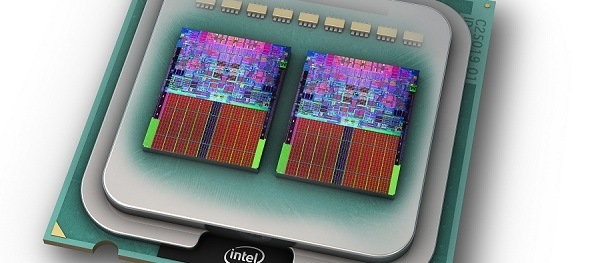The central processing unit (CPU, or processor) on your computer is by far one of the strongest determining factors of its performance. Without a fast CPU, the rest of your hardware will overwhelm it with more tasks than it can muster. During the mid 90s, when the desktop PC market was picking up the pace significantly, CPUs would have only one core. Today’s modern CPU is an architectural marvel, with several different channels for distributing and temporarily storing tasks. They’re smarter, faster, and more dynamic. But new CPUs have raised new questions among the public. In particular, there’s one battle that will probably never end: the fight between the amount of cores a CPU has and its clock speed.
It’s Not A Battle, Though
First off, this isn’t necessarily a “battle” as much as it is a debate about what should be prioritized. You won’t find anyone who is well-versed in technology saying that we should completely abandon multi-core CPUs and just go for as much clock speed as possible. There’s a reason why cores started appearing on CPUs, and there’s an equally valid reason why chip manufacturers are trying to one-up each other on clock speed.
On a daily basis, manufacturers have to carefully design their next CPU models to make sure that they stack up well to the competition and deliver a solid product that will make their consumers happy. That means achieving a realistic but harmonious balance between cores, clock speed, and architecture.
Why Cores Are Important
If you had a computer back in the 90s or even in the early 2000s, you may remember that when one program froze, it was likely that your entire system would freeze as well. This wasn’t only a problem with how operating systems like Windows handled tasks back in the day. Having a CPU with only one core ensures that you would only be able to accomplish one task at a time. Having multiple cores lets a CPU process multiple things at one time, dividing the work into multiple units. If one core gets “clogged” by a task that just keeps looping (e.g. the program using that core freezes), the chip’s overall work can still continue while you figure out what’s wrong or eventually close the program to free up that core.
In essence, cores are multitasking instruments. They allow more dynamism and an easier flow when running things on your computer. Today, even smartphones have CPUs with multiple cores.
Multi-core CPUs appear faster because they are able to take a much larger amount of workload than their single-core counterparts. They are very reliable at removing congestion. Think of them as runways at an airport. The more of them you have, the easier it will be to get planes on the ground.
Why Clock Speed Is Important
A CPU’s clock speed, as the name implies, greatly affects the amount of tasks each core can churn through at a given period of time. The speed, along with its bit width, tells you how much data can flow through per second. If one CPU has a bit width of 32 bits and a speed of 3.93 GHz, that means it can process almost 4 billion units of 32 bits of data per second. That’s 4 billion integers!
Faster clock speeds means more responsiveness when running heavy linear tasks such as running single-threaded applications. Most programs still function in a linear fashion, making use of only one core. In these cases, clock speed is king.
Conclusion
You could have an 8-core CPU running at 2.9 GHz, but sometimes a 4-core CPU running at 4.3 GHz will be faster even with only half the cores. It all depends on how many pieces each task can be split up into. Video processing is one of those things where the entire task can be split into as many pieces as you’d like. In such a case, having the 8-core CPU I mentioned earlier would give you an advantage. Most applications (such as browsers), however, make use of only one or two cores, meaning that in those cases, you’d be better off with the 4-core CPU.
In the end, there’s no battle to be won here. It’s all about what you’re using your computer system for. If you use multi-threaded applications which require lots of multitasking, place a priority on the number of cores in your CPU. Should you desire something more straightforward like gaming, you may not need a whole lot of cores, but would want to have as much clock speed as possible.
Want to ask more questions about cores vs. clock speed? Leave a comment below!
The post CPUs: Core Count vs. Clock Speed, Which Is Better? appeared first on Make Tech Easier.
